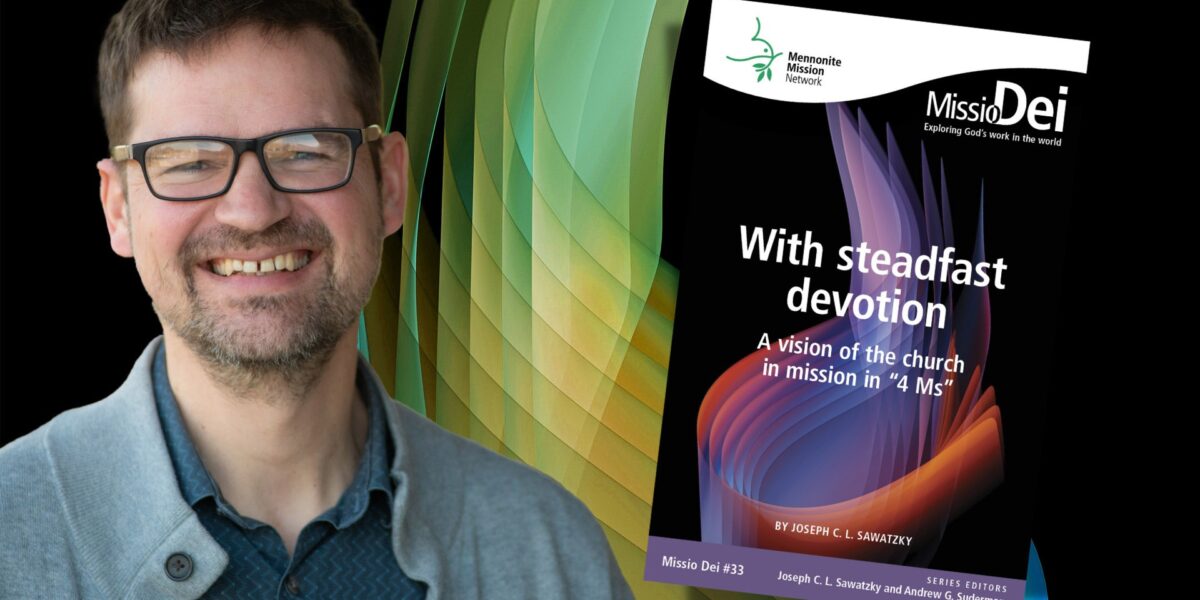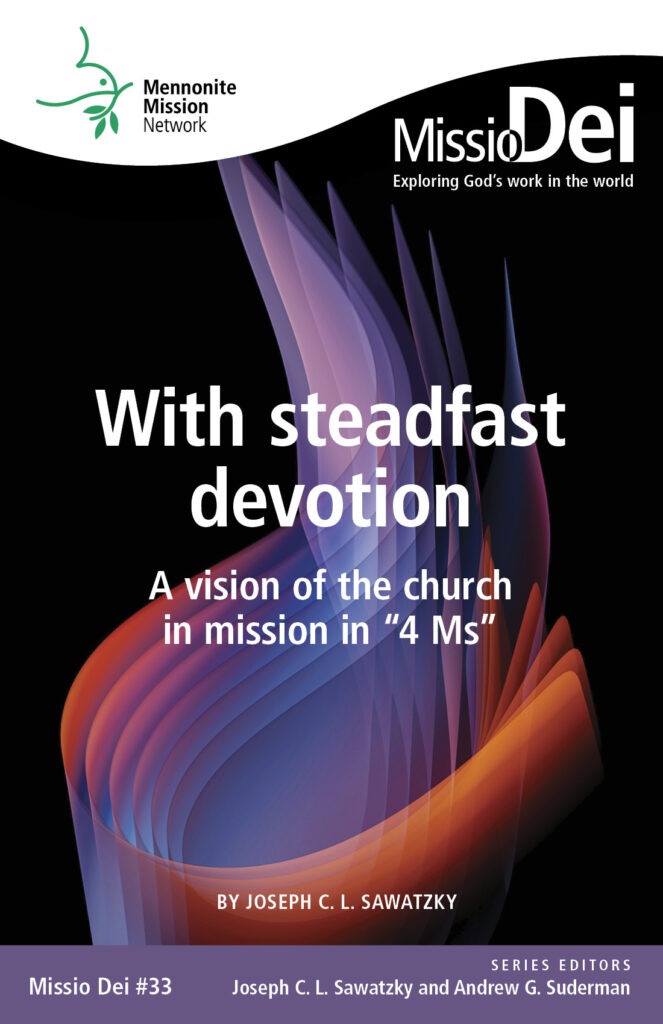The booklet, “With steadfast devotion: A vision of the church in mission in ‘4 Ms'” is available in both English and Spanish languages. This 33rd publication in the Missio Dei series was written by Joseph C. L. Sawatzky, Ph.D., Mennonite Mission Network training and resources facilitator and Anabaptist Mennonite Biblical Seminary Global Leadership Collaborative project specialist.
Throughout the booklet, Sawatzky dives into how the biblical story of the church of Antioch (Acts 11:19-30), the first major church of Jewish and Gentile followers of Christ, provides a powerful example of what it means to be a faithful church and can inspire us today. “In our current times,” Sawatzky said, “marked by in-group, ethnic and national conflicts, the vision of Antioch … serves as a compelling reminder of true devotion to Jesus. As Acts 11:23 says, we are called to be ‘faithful to the Lord with steadfast devotion.'”
Acts 11:19-30 portrays the church in Syrian Antioch as fully engaged in God’s mission. Missio Dei #33 states that this passage is an origin story for the church, with Antioch being where believers in Jesus were first called “Christians.” This passage describes four attributes of a church that is fully engaged in God’s mission.
These “4 Ms” were embodied by the church in Antioch. They are:
Multiethnic: The church in Antioch was multiethnic, consisting of Jewish and Gentile believers in Christ, from many different nations.
Multiplying: The church in Antioch was growing numerically, with a great number of believers flocking to the church after Jews from Cyprus and Cyrene — and, later, Barnabas — spoke to the Greek people in Antioch.
Maturing: The church in Antioch was also growing in their relationship with Christ. Barnabas and Saul spent an entire year teaching believers there.
Mutuality: The church in Antioch believed in working together, modeling themselves after their leaders, Barnabas and Saul, as well as embodying the gifts of the spirit that Saul (Paul) lists in Ephesians 4.
Sawatzky believes that these “4 Ms” have great relevance for the modern church. “I think in our world today, we have churches that emphasize one or more of these ‘Ms,’ but the challenge for us is to remember the holistic nature of the church,” Sawatzky said.
As an example, he describes a hypothetical church that is keen to help its already-existing members mature and grow in their relationship with Jesus — living out the maturing aspect of the 4 Ms. But that same church, Sawatzky said, might “lose sight of people who have not been exposed to the story of Christ” and end up ignoring the multiplying “M.”
“Perhaps one of the outcomes of offering this “4 Ms” framework is that I’ll become more aware of how churches are living out this vision,” Sawatzky said.
The word “Christian” was not used to describe the followers of Jesus until a large number of non-Jewish believers joined the early church. Thus, it indicates, Sawatzky said, a community that can be described in the words of Ephesians 2:15 (NRSV) as “the one humanity in place of the two,” reconciled together to God, through the sacrificial love of Jesus Christ.
Sawatzky said, “The word ‘Christian’ stands for this unity-in-diversity that we call the church, the community of Jesus’ disciples ‘of all nations’ (Matthew 28:19, NRSV).”








